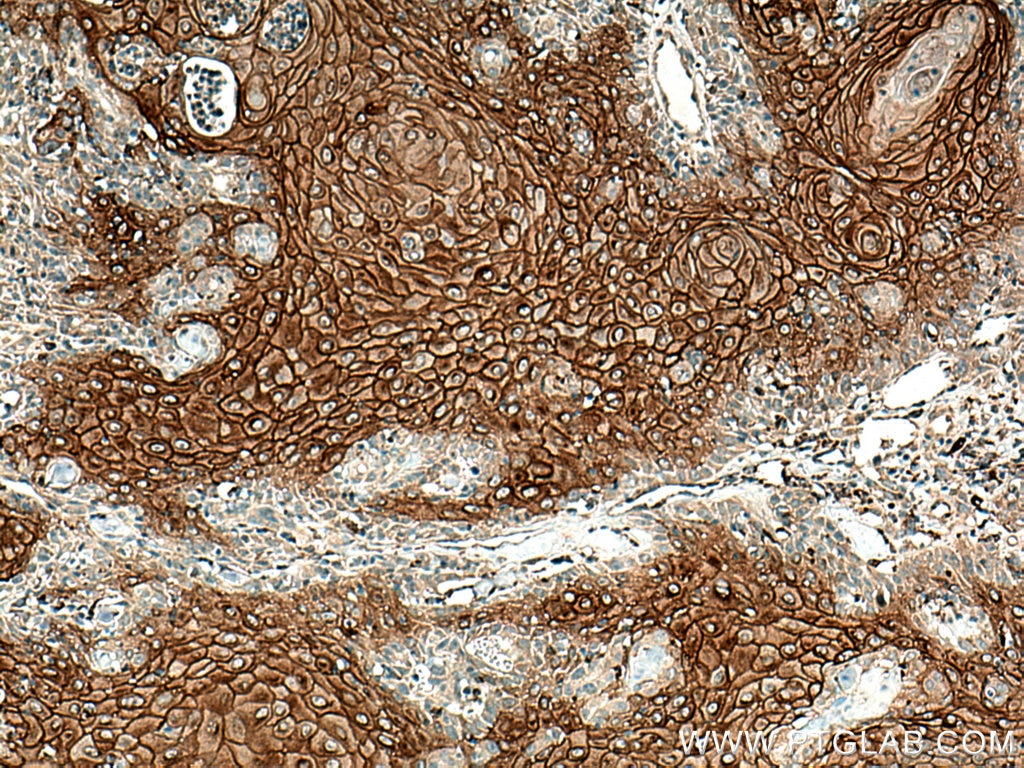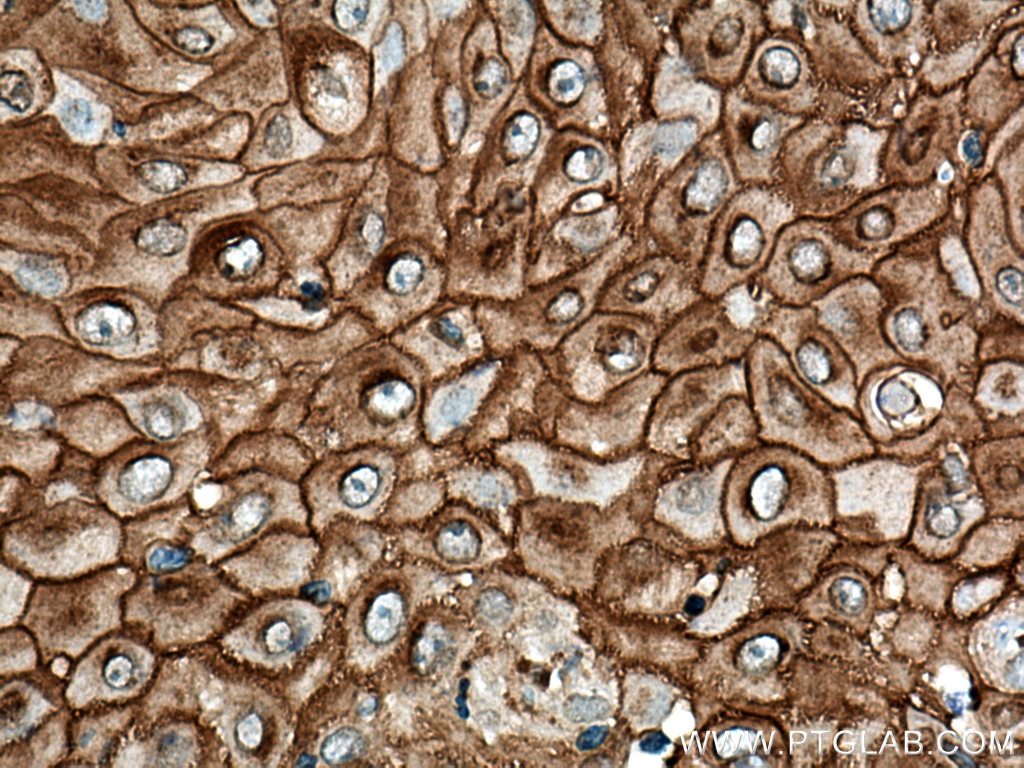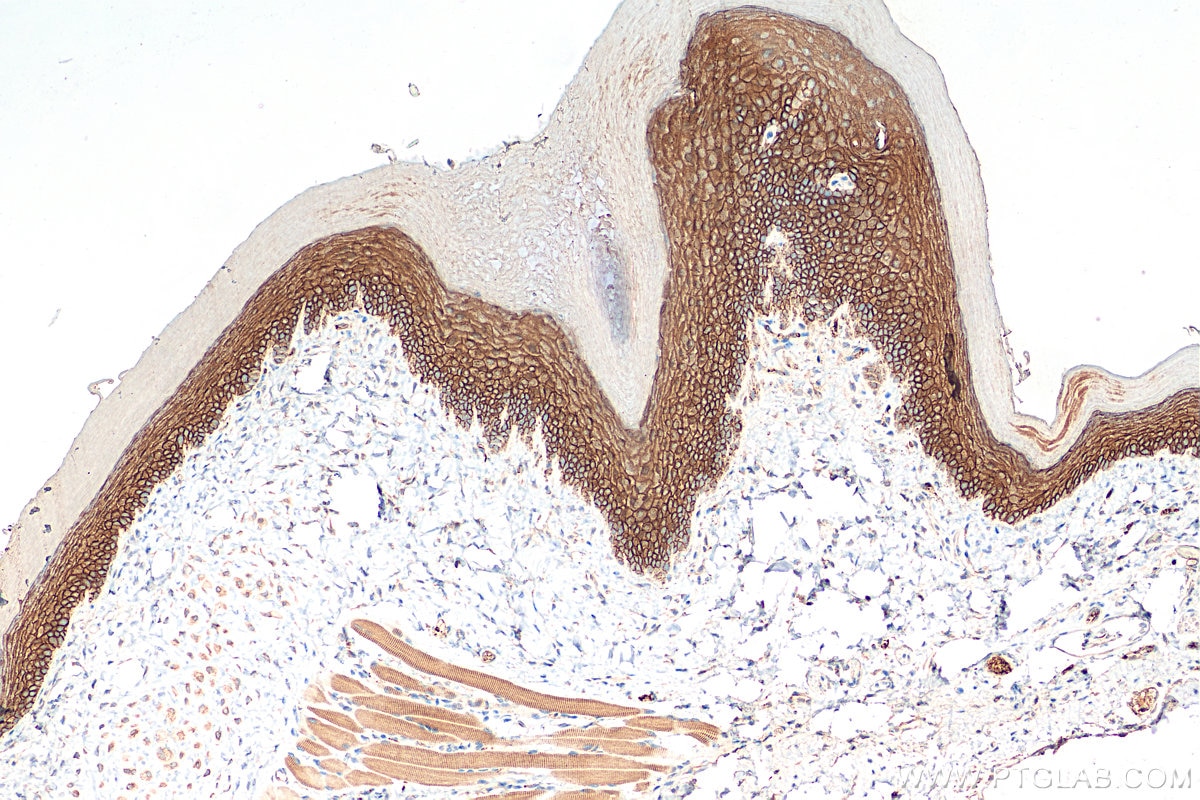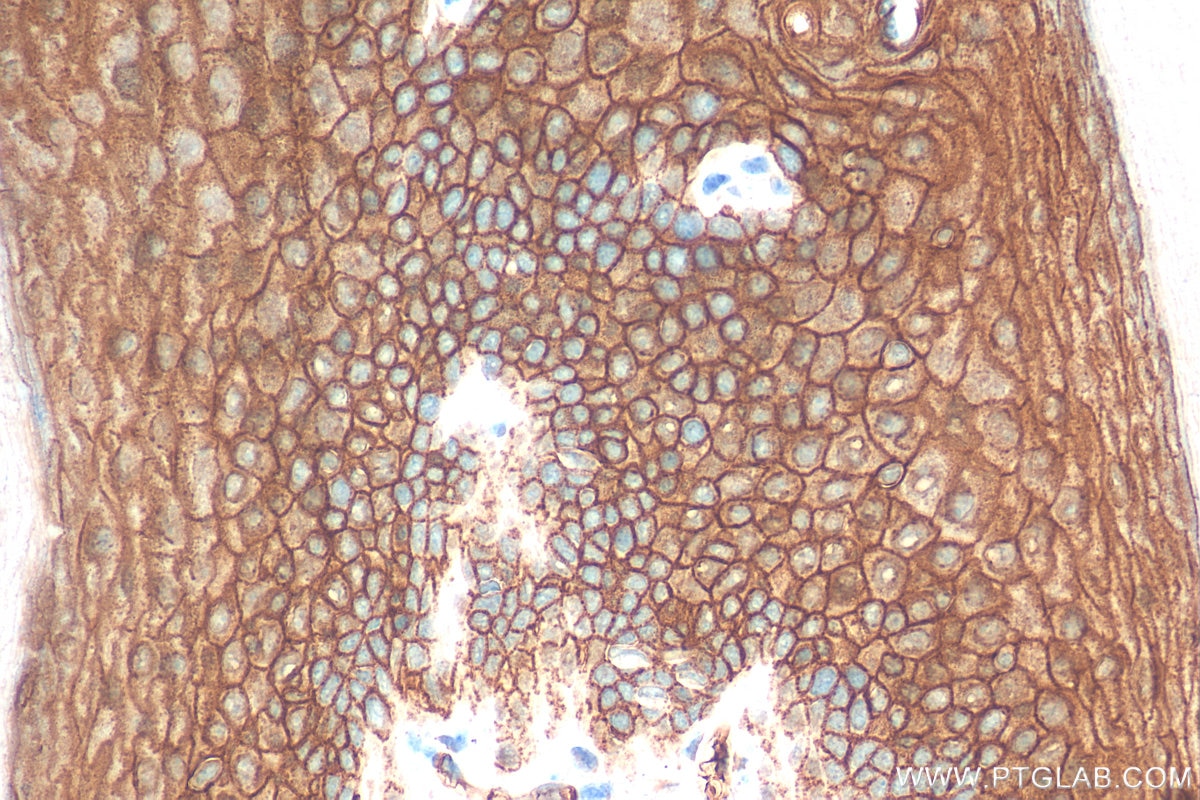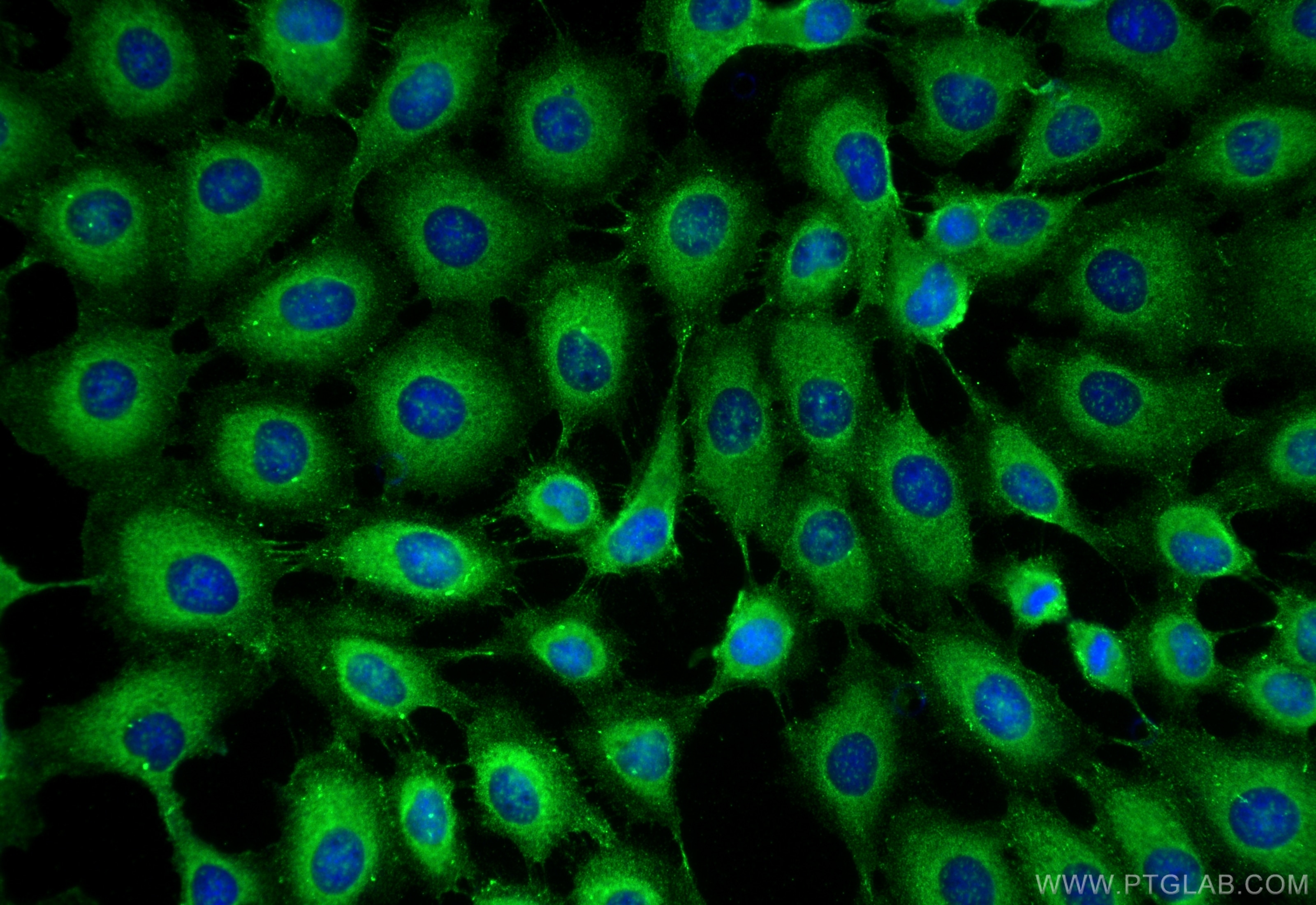Anticorps Polyclonal de lapin anti-DSG1
DSG1 Polyclonal Antibody for IHC, IF/ICC, ELISA
Hôte / Isotype
Lapin / IgG
Réactivité testée
Humain, souris et plus (1)
Applications
WB, IHC, IF/ICC, ELISA
Conjugaison
Non conjugué
N° de cat : 24587-1-AP
Synonymes
Galerie de données de validation
Applications testées
| Résultats positifs en IHC | tissu cutané de souris, tissu de cancer de la peau humain il est suggéré de démasquer l'antigène avec un tampon de TE buffer pH 9.0; (*) À défaut, 'le démasquage de l'antigène peut être 'effectué avec un tampon citrate pH 6,0. |
| Résultats positifs en IF/ICC | cellules A431, |
Dilution recommandée
| Application | Dilution |
|---|---|
| Immunohistochimie (IHC) | IHC : 1:500-1:2000 |
| Immunofluorescence (IF)/ICC | IF/ICC : 1:500-1:2000 |
| It is recommended that this reagent should be titrated in each testing system to obtain optimal results. | |
| Sample-dependent, check data in validation data gallery | |
Applications publiées
| WB | See 5 publications below |
| IHC | See 2 publications below |
| IF | See 11 publications below |
Informations sur le produit
24587-1-AP cible DSG1 dans les applications de WB, IHC, IF/ICC, ELISA et montre une réactivité avec des échantillons Humain, souris
| Réactivité | Humain, souris |
| Réactivité citée | rat, Humain, souris |
| Hôte / Isotype | Lapin / IgG |
| Clonalité | Polyclonal |
| Type | Anticorps |
| Immunogène | DSG1 Protéine recombinante Ag20184 |
| Nom complet | desmoglein 1 |
| Masse moléculaire calculée | 1049 aa, 114 kDa |
| Numéro d’acquisition GenBank | BC153001 |
| Symbole du gène | DSG1 |
| Identification du gène (NCBI) | 1828 |
| Conjugaison | Non conjugué |
| Forme | Liquide |
| Méthode de purification | Purification par affinité contre l'antigène |
| Tampon de stockage | PBS with 0.02% sodium azide and 50% glycerol |
| Conditions de stockage | Stocker à -20°C. Stable pendant un an après l'expédition. L'aliquotage n'est pas nécessaire pour le stockage à -20oC Les 20ul contiennent 0,1% de BSA. |
Informations générales
Desmosomes are cell-cell junctions between epithelial, myocardial, and certain other cell types. Desmosomal cadherins, consisting of four desmogleins (DSG1-4) and three desmocollins (DSC1-3) in humans, mediate adhesion through calcium-dependent homophilic/heterophilic interactions. DSG1 is a single-pass transmembrane glycoprotein highly expressed in the epidermis and localized primarily within the suprabasal epithelial layers (PMID: 16286477; 24220297). DSG1 mediates intercellular adhesion and is crucial in maintaining epidermal integrity and barrier function (PMID: 23974871). It is also involved in epithelial cell differentiation (PMID: 23524961). Mutations in the DSG1 gene can cause the autosomal dominant disorder to striate palmoplantar keratoderma and a syndrome featuring severe dermatitis, multiple allergies, and metabolic wasting (SAM syndrome) (PMID: 29315490; 23974871).
Protocole
| Product Specific Protocols | |
|---|---|
| IHC protocol for DSG1 antibody 24587-1-AP | Download protocol |
| IF protocol for DSG1 antibody 24587-1-AP | Download protocol |
| Standard Protocols | |
|---|---|
| Click here to view our Standard Protocols |
Publications
| Species | Application | Title |
|---|---|---|
J Nanobiotechnology ZNPs reduce epidermal mechanical strain resistance by promoting desmosomal cadherin endocytosis via mTORC1-TFEB-BLOC1S3 axis | ||
EMBO Rep O-glycan initiation directs distinct biological pathways and controls epithelial differentiation. | ||
Stem Cell Res Ther Both Wnt signaling and epidermal stem cell-derived extracellular vesicles are involved in epidermal cell growth. | ||
J Cell Sci Novel stress granules-like structures are induced via a paracrine mechanism during viral infection. | ||
In Vitro Cell Dev Biol Anim S100A11 is involved in the progression of colorectal cancer through the desmosome-catenin-TCF signaling pathway | ||
Microscopy (Oxf) Inhibition of retinoid X receptor improved the morphology, localization of desmosomal proteins and paracellular permeability in three-dimensional cultures of mouse keratinocytes. |
